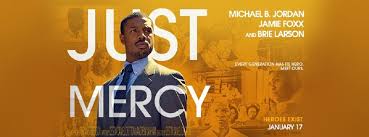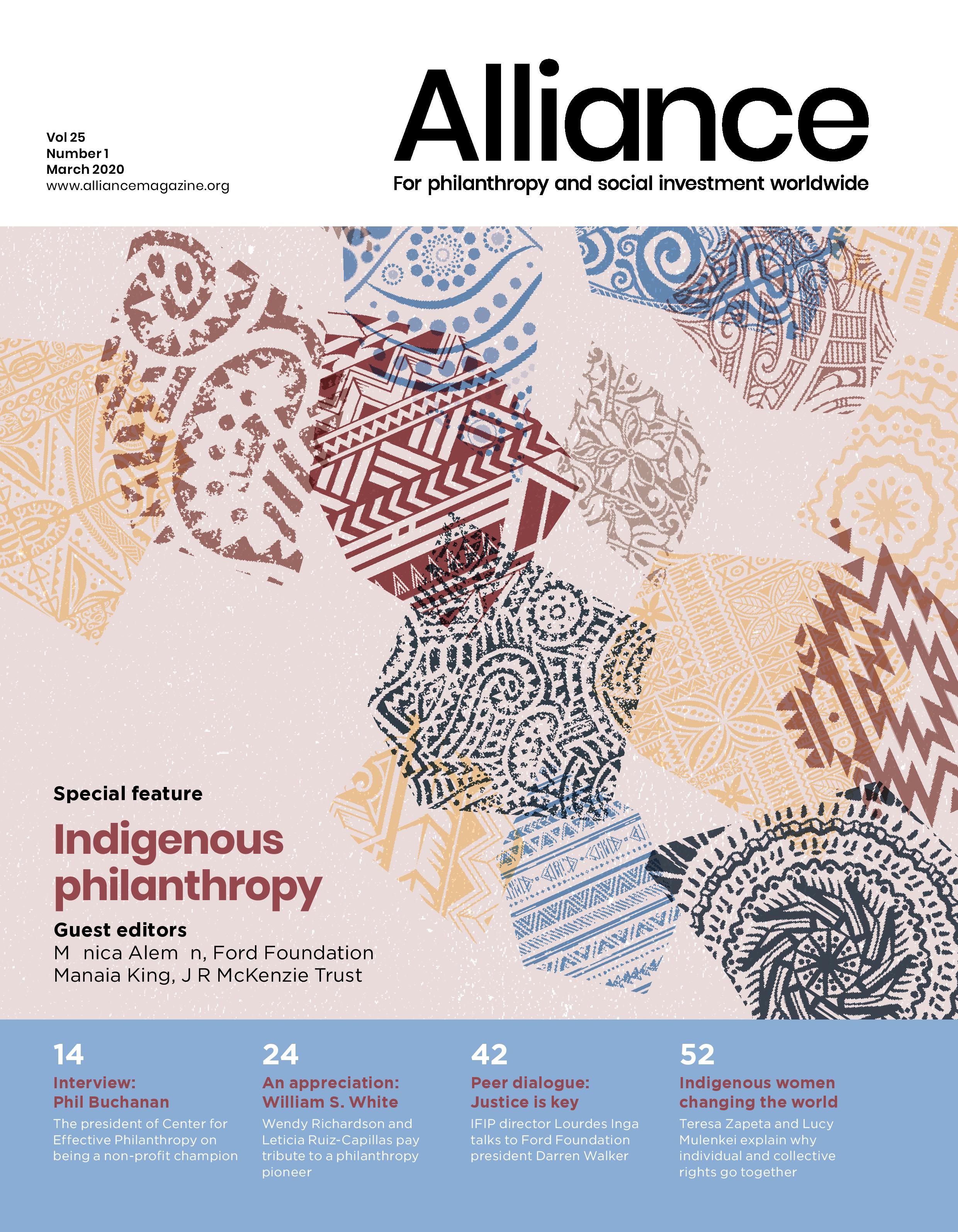
Phil Buchanan.
Phil Buchanan, president of the Center for Effective Philanthropy (CEP) and author of Giving Done Right: Effective philanthropy and making every dollar count, tells Charles Keidan why he thinks the US non-profit sector is so important to the health of a democratic polity and why it’s a mistake to tar all philanthropy with the same brush.
CK: You’ve championed the non-profit sector and described it as ‘tireless, necessary and under-appreciated’ especially in the Trump era. Why do you think non-profits are central to so much that is important, not just in philanthropy but society itself?
PB: In the first decade of our work at CEP, we were fighting against the idea that non-profits should operate like business. One stereotype about non-profits is that their staff couldn’t make it in the real world, when in fact running a non-profit is harder than running an equivalent-sized business. You’re working on issues that have defied market or government solutions. What I hoped to be able to do in the book is tell the story of what it is like to work at a small community-based organisation and why that work is so important and often undervalued. Because we still have the critique from the ‘business knows best’ crew, but now from the other side, we also have more criticism that philanthropy is undermining democracy or the role of government. I worry that in both cases we’re losing sight of the importance of non-profits, so it’s become important to try to get that message out.
If we can surface perspectives that funders might not otherwise hear from and we can provide more candid feedback from those closer to the ground, then people are more likely to get to better answers.
Don’t you think people like Rob Reich, who Alliance interviewed last year, are justified in saying we need to improve the practice of government rather than rely on philanthropy to deliver the solutions to social problems?
Yes. We should work to change an approach to taxation where, at least in the US, the wealthy are taxed at too low a rate and there’s a role for philanthropy to raise this issue. But some of the critique overlooks the fact that, even if the government were to play the role we’d like, there are certain things that it will not be able to do entirely or particularly well, so we should not disparage the role of philanthropy and the non-profits they support. When critics like Anand Giridharadas claim that non-profits are a big part of how a rigged system gets rigged, it’s neither generally fair nor helpful. In fact it hurts the very people who are often being served by non-profits that are working to unrig the system.
So you think some of these criticisms are too generalised?
Exactly. Just because you think Jeffrey Epstein and the Sacklers used their philanthropy to purchase legitimacy, you shouldn’t extend that to philanthropy or philanthropists in general.
I take that point, but isn’t there a concern that the Epsteins and Sacklers inhabit the same world as many philanthropists who are widely praised, a world of elite wealth and power? Bill Gates was reported to have travelled on a private jet with Jeffrey Epstein, which seems symptomatic that, while the particular vices of Epstein and the Sacklers are unique to them, the world they inhabit is similar – certain characteristics are consistent with the world they come from.
We can all condemn that and criticise Bill Gates for being not nearly as discerning as he should have been about the company he kept, and he wasn’t particularly forthright about it once it was in the news. But a big part of institutional philanthropy is not an individual donor seeking some way to preserve the status quo or make themselves look more beneficent than they are. There’s a lot of professionally staffed institutions where the wealth was created many years ago and we need to acknowledge that these institutions are a part of our society and encourage them to give effectively – when we over-generalise in this way, it isn’t helpful. And to flip the emphasis, we need to focus on what non-profits need. In this country, one in ten people work at a non-profit organisation. Of those CEP has surveyed over the years, the median budget is $1.5 million and they’re mostly community-focused. They are relatively small organisations that are dependent on philanthropy to do the things that they do, and one of my critiques of the critiques in Rob’s and Anand’s books is that you find hardly a mention of an actual non-profit. It’s a conversation about the donors, not about the recipients. We need to keep our focus on the work of NPOs because people in communities are affected by it.
People I’ve spoken to say you play a lonely role in defending the non-profit sector and wondered why philanthropy bodies like the Council on Foundations or the Philanthropy Roundtable have not been more robust in its defence. Did you expect more support, particularly at a time of serious criticism?
The Council on Foundations has new leadership. Kathleen Enright, who I consider a friend, will increasingly be talking about the importance of philanthropy and of the non-profits it supports, but she’s essentially still brand new and we need to give her a minute. I really appreciate the work of Tim Delaney and the National Council for Non-Profits who put out a great piece in October that tells the story with data about what the non-profit sector in this country did. Dan Cardinali at Independent Sector is also still relatively new but I think he’ll be making the case for the importance of civil society. The Council and Independent Sector are more focused on particular policy matters that are important to non-profits. The thing that I would like to see more of is private foundations telling the story of the sector, not just of their great grantees but of the network of non-profits that make a community better.

Movie based on the work of Equal Justice Initiative founder Bryan Stevenson. Photo: IMDb
The two foundations that come to mind when you say that are the Ford and NoVo Foundations, who celebrate the work of their grantees engaged in social justice struggles and social movements. Is that what you’d like to see happening more?
Yes. Bryan Stevenson and the Equal Justice Initiative have received a lot of justified attention in the last few years in this country. The Ford Foundation and the Public Welfare Foundation supported them in the early days. What an unbelievable impact he and that organisation have had! His life’s work has been turned into a Hollywood movie, Just Mercy, and I’d like to see other maybe less well-known heroes celebrated, too, who are working on really difficult issues, making great personal sacrifices.
Can you briefly explain what Bryan did?
The Equal Justice Initiative, which he founded, worked on defending people on Death Row, but also more broadly on criminal justice reform in this country which has a preposterously high rate of incarceration, particularly of African-American men. But more recently, he’s taken on the task of helping this country confront its history of racism through the creation of a memorial to the many lynchings that occurred primarily in the South.
Do you see this as an embodiment of the value of the non-profit sector because it’s the kind of thing the government and the private sector either can’t or won’t do?
Exactly. Because the rate of incarceration is a direct result of government action. The way we’re approaching criminal justice in this country is both immoral and irrational. It’s also racist.
I don’t think effective altruism in its pure form speaks practically to the way most people live and I think we should encourage people both to give back in their local community and to care about people whom they will never meet.
Is this also an example of a battleground in philanthropy, with liberal foundations and philanthropists wanting to focus on rehabilitation of offenders, while more conservative foundations want a more punitive approach to criminal justice? Isn’t this exactly how philanthropy and non-profits reflect society’s different political views?
In this case, there has been an emerging consensus that crosses ideological boundaries, with conservative donors like the Koch Foundation supporting criminal justice reform. One of my disagreements with Rob Reich is that he sees philanthropy as almost inherently undemocratic. To me, our democracy – and I’m sure Rob would agree – needs to include protections for people who are in the minority, and it’s really important that there are ways for citizens to organise and to raise questions like, for example, whether gay and lesbian people should be allowed to marry, and to try to influence opinion.
Isn’t there still the concern that despite the democratic features of the non-profit sector, by relying on it you’re relying on solutions that will be in the hands of some of society’s wealthiest people who might lean to the right?
I totally hear that. But I agree with Olivier Zunz who says that the give and take between non-profits and philanthropists with different perspectives has enlarged our democracy.
CEP’s focus over the last 20 years has been to create more effective philanthropy. But is effectiveness the only guide? Do you take on clients irrespective of their cause?
Institutionally, this is a conversation we have all the time, and particularly in the wake of the Epstein scandal, every non-profit needs to think about who it would not work with or accept support from.
Who would CEP not work with?
We wouldn’t work with a foundation or donor who was pursuing an agenda that was fundamentally evil or racist. We have a general rule of not acting as arbiters, but there are a variety of principled exceptions we’d make. But, yes, we work with foundations who think that charter schools, vouchers and school choice are the right way to reform the American public education system, and we work with foundations who think those things are absolutely the wrong way to reform that system.
In order to make a difference in the world, sometimes you have to work with people you have serious problems with, because if you turn your back on them, it can mean turning your back on literally millions of people.
And you’ll make both sides more effective!
I don’t presume to know the answer, but if we can surface perspectives that funders might not otherwise hear from and we can provide more candid feedback from those closer to the ground, then people are more likely to get to better answers.
One philosophy of philanthropy that seems to resonate with what you’re saying is effective altruism. Is that closest to your thinking or do you see problems with that too?
I see problems with it. I think every donor should grapple with the questions that Peter Singer raises, but I’m not convinced that every American should devote all of their philanthropy to developing countries outside the US, which would be the logical conclusion of following Singer’s advice. Because he’d say, your $100 can go much further in other countries that it can here and if you value each human life equally, then you have no moral choice than to give internationally. It’s important that we encourage people to care about their own communities because our own social fabric needs to be strong. So he raises important questions but I don’t think effective altruism in its pure form speaks practically to the way most people live and I think we should encourage people both to give back in their local community and to care about people whom they will never meet.
To come back to Bill Gates as a lightning rod for the bigger critiques of philanthropy. Do you think he has too much power?
{Long pause} That’s a good question. I wonder if he might even agree. He has too much money and that money brings a certain kind of power. Gates is interesting because he and the Gates Foundation have been an example of both really effective philanthropy and really ineffective philanthropy. People assume that you’re always either good at something or bad at something. But that’s not really the case.
Alliance covered Gates’ Global Goals award to Narendra Modi, the Indian prime minister, for India’s work on public sanitation. Some have raised concerns that giving an award in effect endorses a government that is committing human rights abuses. We asked a number of people in our sector, particularly human rights funders about this but few were willing to go on record with their concerns. What’s your view of the affair?
I’m not deeply knowledgeable about this, but I would say two things. One – in order to make a difference in the world, sometimes you have to work with people you have serious problems with, because if you turn your back on them, it can mean turning your back on literally millions of people. On the other hand, it seems unwise to give an award to someone who is responsible for some reprehensible things. Working with people to get something important done is one thing, unnecessarily legitimising them, that’s problematic.

Not a suitable mode of travel for philanthropists with climate concerns? Photo: Chris Leipelt
In his most recent New Year’s letter, Bill Gates said that climate change is one of his three priorities. Now, a lot of philanthropists travel by private jet and some invest their wealth and foundation endowments in fossil fuels. Do you think a philanthropist can travel by private jet and invest in fossil fuels while having a consistent mission on climate change?
In general, people should be embarrassed to be flying on a private jet, that’s just Phil Buchanan’s view. Both because of the climate effects, and also… just get over yourself. I know we have clients with donors who use private jets, but that’s what I think.
And fossil fuel investments?
If you have a massive endowment you should ask yourself what influence you can have, beyond the 5 per cent you give in grants. I don’t think the answers to those questions are necessarily clear-cut but you should at the very least be thinking about using your power as a shareholder to advocate for change and you should engage the question of whether you should divest altogether.




Comments (0)